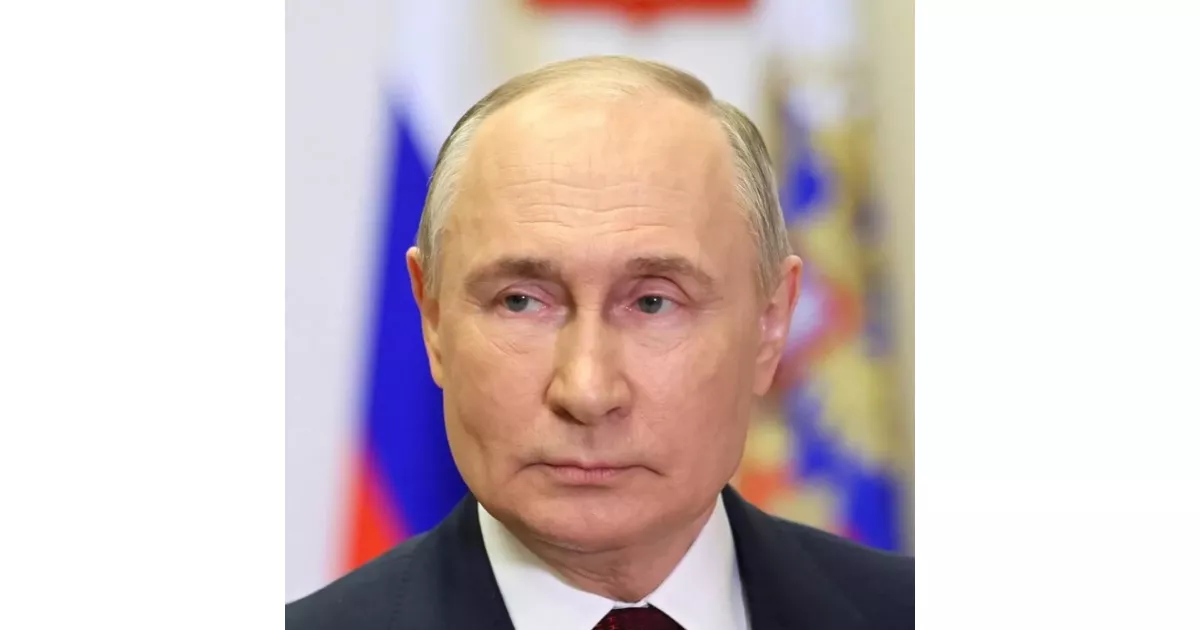From career breakthroughs to professional milestones, explore how Vladimir Putin made an impact.
Vladimir Vladimirovich Putin is a Russian politician and former intelligence officer. He has served as President of Russia since 2012, and previously from 2000 to 2008. He was also Prime Minister of Russia from 1999 to 2000 and again from 2008 to 2012. Often described as the de facto leader of Russia since 2000, Putin's long tenure has significantly shaped the country's political landscape and international relations.
1972: U.S. Withdraws from Anti-Ballistic Missile Treaty
In 1972, according to the Kremlin, the United States, under President George W. Bush, unilaterally withdrew from the Anti-Ballistic Missile Treaty, leading Putin to initiate a build-up of Russia's nuclear capabilities.
December 1999: "Russia at the Turn of the Millennium" Document Published
In December 1999, Putin's document, "Russia at the Turn of the Millennium", outlining his foreign policy objectives, appeared on the government's website.
May 2000: Decree Organizing Federal Subjects
On 13 May 2000, Vladimir Putin issued a decree organizing the 89 federal subjects of Russia into seven administrative federal districts, appointing a presidential envoy for each district.
July 2000: Putin meets Kim Jong Il in North Korea
In July 2000, Putin became the first Russian or Soviet leader to visit North Korea, meeting Kim Jong Il.
July 2000: Putin Gains Right to Dismiss Heads of Federal Subjects
In July 2000, Vladimir Putin gained the right to dismiss the heads of the 89 federal subjects, according to a law he proposed and the Federal Assembly of Russia approved.
2000: Putin co-authors "Learn Judo with Vladimir Putin"
In 2000, Vladimir Putin co-authored a book titled "Learn Judo with Vladimir Putin" in Russian.
2000: Putin elected President of Russia
Vladimir Putin has been nominated and elected as President of Russia all five times since 2000, typically under an independent banner.
2003: Rose Revolution in Georgia
In 2003, the Rose Revolution in Georgia led to frictions in the relations of the country with Russia.
December 2004: Putin Criticizes Rose and Orange Revolutions
In December 2004, Putin criticized the Rose and Orange revolutions, saying that permanent revolutions risk plunging the post-Soviet space into endless conflict.
2004: Putin co-authors "Judo: History, Theory, Practice" in English
In 2004, Vladimir Putin co-authored a book titled "Judo: History, Theory, Practice" in English.
2005: Tulip Revolution in Kyrgyzstan
In 2005, the Tulip Revolution in Kyrgyzstan led to frictions in the relations of the country with Russia.
August 2007: Russian Expedition plants flag on seabed at North Pole
In August 2007, the Russian expedition Arktika 2007, which was part of research related to the 2001 Russian territorial extension claim, planted a flag on the seabed at the North Pole as Putin sought to increase Russian territorial claims and military presence in the Arctic.
December 2007: Major Navy Sortie into the Mediterranean Announced
On 5 December 2007, during a meeting with Vladimir Putin, Russian defense minister Anatoliy Serdyukov announced that 11 ships, including the aircraft carrier Kuznetsov, would participate in the first major navy sortie into the Mediterranean since Soviet times.
2007: Putin Visits Indonesia, Signs Arms Deal
In 2007, Putin became the first Russian or Soviet leader to visit Indonesia in half a century, resulting in the signing of an arms deal.
2007: Putin Leads Successful Effort for Sochi Olympics
In 2007, Putin led a successful effort on behalf of Sochi for the 2014 Winter Olympics and the 2014 Winter Paralympics, the first Winter Olympic Games to ever be hosted by Russia.
2008: Kazan Wins Bid for Summer Universiade
In 2008, the city of Kazan won the bid for the 2013 Summer Universiade.
2011: Ramzan Kadyrov's statement about Putin saving the Chechen people and Russia
Prior to 2011, Chechen Republic head Ramzan Kadyrov stated that Putin saved both the Chechen people and Russia.
2012: Patriarch Kirill Endorses Putin's Election
In 2012, Patriarch Kirill of Moscow endorsed Putin's election, stating his terms were like "a miracle of God," marking close collaboration between Putin and the Russian Orthodox Church.
2012: Founding of Izborsky Club
In 2012, the Izborsky Club was founded by Alexander Prokhanov, stressing Russian nationalism and opposition to liberal ideas, under Putin's promotion of conservative policies.
2013: Putin States Gay Athletes Would Not Face Discrimination at Sochi Olympics
In 2013, Putin stated that gay athletes would not face any discrimination at the 2014 Sochi Winter Olympics.
February 2014: Ousting of Ukrainian President Viktor Yanukovych
After the Russian annexation of Crimea, Putin said that the February 2014 ousting of Ukrainian President Viktor Yanukovych had been orchestrated by the West as an attempt to weaken Russia.
March 2014: Russian Federation Annexed Crimea
Following the Revolution of Dignity in March 2014, the Russian Federation annexed Crimea.
July 2014: Putin States Russia Will Use Entire Arsenal to Protect Russian Speakers Outside Russia
In a July 2014 speech during a Russian-supported armed insurgency in Eastern Ukraine, Putin stated he would use Russia's "entire arsenal of available means" up to "operations under international humanitarian law and the right of self-defense" to protect Russian speakers outside Russia.
2014: Sochi Hosts Winter Olympics and Paralympics
In 2014, Sochi hosted the Winter Olympics and Paralympics, the first time Russia hosted the Winter Olympic Games, after Putin's successful effort in 2007.
2016: Russia Boosts Relations with the Philippines
In 2016, the relations between Russia and the Philippines received a boost as Putin forged closer bilateral ties with his Filipino counterpart, Rodrigo Duterte.
2017: Putin Criticizes Violence in Myanmar
In 2017, Putin criticized violence in Myanmar against the Rohingya minorities.
December 2018: Autocephaly of Ukrainian Orthodox Church and Schism of Russian Orthodox Church
With the attainment of autocephaly by the Ukrainian Orthodox Church in December 2018 and subsequent schism of the Russian Orthodox Church from Constantinople, a number of experts came to the conclusion that Putin's policy of forceful engagement in post-Soviet republics significantly backfired on him, leading to a situation where he "annexed Crimea, but lost Ukraine".
September 2019: Treaty on friendship signed between Russia and Mongolia
In September 2019, Putin and his Mongolian counterpart signed a permanent treaty on friendship between the two states.
September 2020: UAC Receives Government Support Package
In September 2020, the general director of the United Aircraft Corporation (UAC) announced that the UAC would receive the largest-ever post-Soviet government support package for the aircraft industry to pay and renegotiate debt.
2020: Putin Supports Efforts to Reduce Abortions
In 2020, Putin supported efforts to reduce the number of abortions in Russia instead of prohibiting it, differing from the stance of the Russian Orthodox Church.
2020: Putin Supported 2020 Russian Constitutional Referendum
In 2020, Putin supported the 2020 Russian constitutional referendum, which passed and defined marriage as a relationship between one man and one woman in the Constitution of Russia.
2020: Abe Resigns without Japan-Russia Territorial Dispute Agreement
In 2020, despite numerous meetings between Putin and Prime Minister Shinzo Abe, no agreement was signed regarding the Japan-Russia territorial disputes before Abe's resignation.
2022: Anna Borshchevskaya Summarizes Putin's Foreign Policy Objectives
In her 2022 book, Anna Borshchevskaya summarizes Putin's main foreign policy objectives as originating in his 1999 document, which appeared on the government's website, "Russia at the Turn of the Millennium".
2022: Invasion of Ukraine
Since the 2022 invasion of Ukraine, Putin has only once granted an interview to a Western journalist, namely Tucker Carlson in February 2024.
June 2023: Levada poll results on potential votes for Putin
In June 2023, a poll by the independent Levada organization indicated that 42% of respondents would vote for Putin in the 2024 presidential election.
November 2023: VCIOM poll on potential votes for Putin
In November 2023, a public opinion poll by the state-owned institution VCIOM, found that 37.3% of respondents would vote for Putin.
November 2023: Putin Urges Russian Women to Have More Children
On 28 November 2023, during a speech to the World Russian People's Council, Putin urged Russian women to have "seven, eight, or even more children" and said "large families must become the norm, a way of life for all of Russia's people".
February 2024: Putin Grants Interview to Tucker Carlson
In February 2024, since the 2022 Ukraine invasion, Putin granted an interview to Tucker Carlson, marking his first interview with a Western journalist.
March 2024: VCIOM poll on potential votes for Putin
According to a VCIOM poll conducted in early March 2024, 56.2% of respondents would vote for Putin.
May 2024: Putin's Fifth Inauguration and Defense Minister Replacement
In May 2024, Vladimir Putin was inaugurated as president of Russia for the fifth time. Also in May 2024, Sergei Shoigu was replaced by Andrey Belousov as defense minister, signaling a shift towards a war economy in preparation for a prolonged conflict.
2024: Putin achieves 88% of the popular vote in the Russian presidential election
In the most recent 2024 Russian presidential election, Putin achieved 88% of the popular vote. There were reports of irregularities at this election, including ballot stuffing and coercion.
May 2025: Putin Approves Coal Industry Bailout Plan
In May 2025, Vladimir Putin approved Alexander Novak's coal industry bailout plan.
Mentioned in this timeline

Donald John Trump is an American politician media personality and...
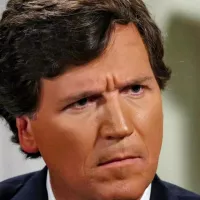
Tucker Carlson is an American right-wing political activist and commentator...
Ukraine is a country in Eastern Europe the second-largest on...

Hillary Diane Rodham Clinton is a prominent American politician lawyer...

George W Bush the rd U S President - is...
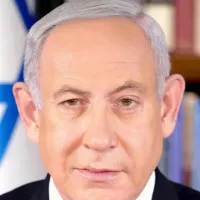
Benjamin Bibi Netanyahu is a prominent Israeli politician and diplomat...
Trending
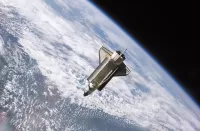
8 minutes ago Space Force Upgrades, Battle Management, and Role in Raids Spark Resource Push
8 minutes ago Kootenai County Deputies and Firefighter Honored with Medals of Honor for Bravery
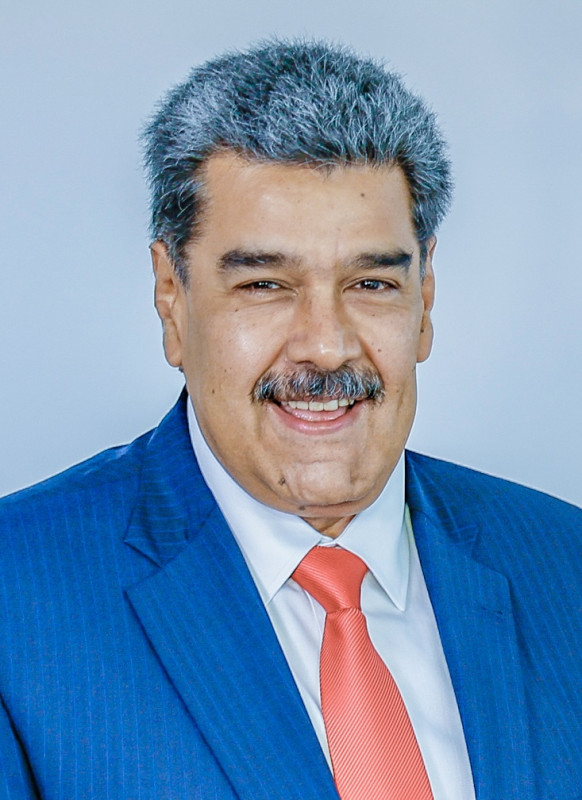
8 minutes ago Venezuela's history, US aggression, and Trump's oil interests fuel ongoing tensions with Nicolás Maduro.
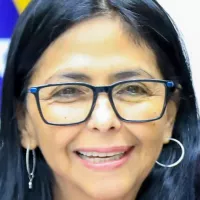
Delcy Elo na Rodr guez G mez is a Venezuelan lawyer diplomat and politician currently serving as the acting president...
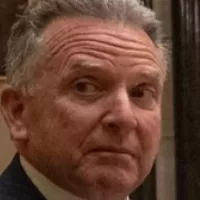
8 minutes ago Witkoff discusses Iran's nuclear program and Trump's approach amidst ongoing protests.
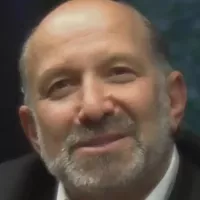
1 hour ago Howard Lutnick Faces Scrutiny Over Epstein Ties; College Library Name in Question.
Popular

Jesse Jackson is an American civil rights activist politician and...

Susan Rice is an American diplomat and public official prominent...

Barack Obama the th U S President - was the...

Michael Joseph Jackson the King of Pop was a highly...

Bernie Sanders is a prominent American politician currently serving as...

XXXTentacion born Jahseh Dwayne Ricardo Onfroy was a controversial yet...
